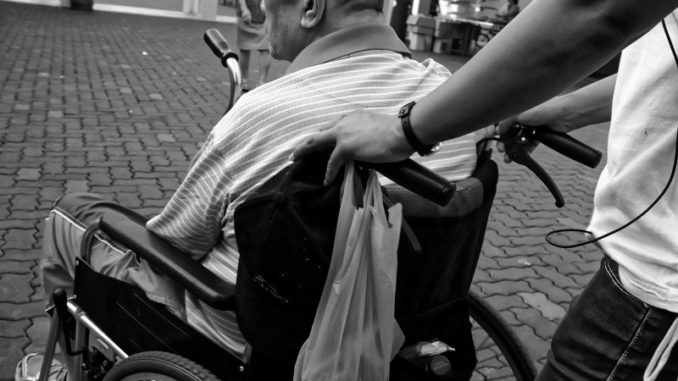
Social care services are facing their “toughest winter for at least a generation”, North Yorkshire bosses have warned, saying they are facing a significant challenge to provide safe services to all the elderly and vulnerable people who rely on them.
NHS pressures and a step-change in workforce availability mean that, for the first time, North Yorkshire County Council is having to redeploy its staff and resources to cover large numbers of vacancies in the sector to areas of greatest needs.
A meeting of the authority’s executive heard the authority was facing the “real prospect of having to make temporary changes to ensure safe service”, just weeks after launching a major recruitment campaign for the social care sector.
Leading councillors were told while the government’s pandemic-induced process for speeding up hospital discharges remained in place, it had led to a 42 per cent increase in workload for council officers in providing assessments.
In addition, as a rising number of care homes have closed due to financial or staffing issues the council has increasingly been forced to act as a provider of last resort, ensuring people are safe and getting the care they need, diverting its staff to cover the gaps in provision.
Executive member for adult social care Councillor Michael Harrison said the pressures on its staff were now impacting “right across the system”.
He said the situation was being enflamed by fierce competition in the labour market which had led to high numbers of job vacancies alongside providers failing, as well as a high level of home care packages that care firms were not taking up.
However, the meeting was told the impact of mandatory Covid vaccinations for care sector staff had not been as severe as had been forecast.
The authority only lost nine care home staff that it could not redeploy out of a workforce of about 2,000 people. Nevertheless, some 240 staff across the county’s care sector left their jobs because of the change.
An officer’s report to the meeting heard whilst the council focuses on prevention, the capacity of in-house reablement and provider services, practical help to the wider care market such as the Quality Improvement Team flying squad, hardship funding and recruitment and training measures, meant the county was relatively well-placed, compared to some of its counterparts in the region.
The report stated “social care is facing its toughest winter for at least a generation”.
Coun Harrison said while the authority would be able to resolve the financial challenges facing social care in the county, at least in the short term, he was concerned about hospitals’ capacity to admit patients being reduced if the council was unable to get people discharged from hospital.
He said: “There is a squeeze on our capacity to provide the reablement services we do routinely and things like respite services if we are having to divert our resources into providing cover for unsourced domiciliary care and dealing with increased hospital discharges.”
The council’s director of health and adult social care Richard Webb added social care services were facing “quite a stark picture”, but many such services across the country were in a similar position.
He said: “There is a challenge about how often we can be that provider of last resort. We are diverting people from other services to provide people with the care that they need. However, there are people waiting for care. We are triaging those and we are supporting them in the best way that we can. ”
The staff shortages have meant the authority is having to limit respite breaks and offer alternative day care, but the meeting was told finding staff in some areas providing some services was proving difficult.
Mr Webb said: “We want to restore services back to some form of normality as soon as possible.”


Be the first to comment